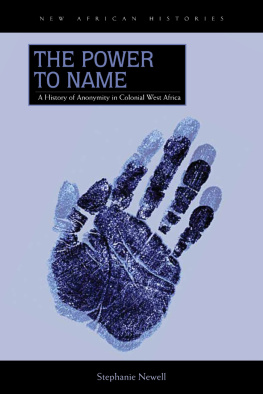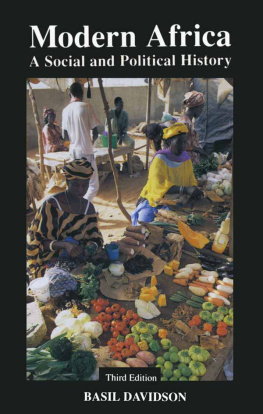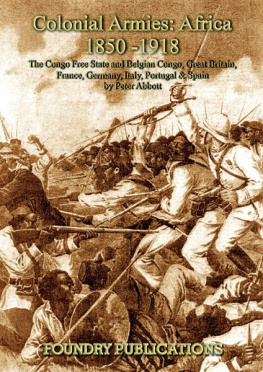First published 1998 by Pearson Education Limited
Published 2014 by Routledge
2 Park Square, Milton Park, Abingdon, Oxon 0X14 4RN
52 Vanderbilt Avenue, New York, NY 10017
Routledge is an imprint of the Taylor & Francis Group, an informa business
Copyright 1998, Taylor & Francis.
The right of Basil Davidson to be identified as author of this Work has been asserted by him in accordance with the Copyright, Designs and Patents Act 1988.
All rights reserved. No part of this book may be reprinted or reproduced or utilised in any form or by any electronic, mechanical, or other means, now known or hereafter invented, including photocopying and recording, or in any information storage or retrieval system, without permission in writing from the publishers.
Notices
Knowledge and best practice in this field are constantly changing. As new research and experience broaden our understanding, changes in research methods, professional practices, or medical treatment may become necessary.
Practitioners and researchers must always rely on their own experience and knowledge in evaluating and using any information, methods, compounds, or experiments described herein. In using such information or methods they should be mindful of their own safety and the safety of others, including parties for whom they have a professional responsibility.
To the fullest extent of the law, neither the Publisher nor the authors, contributors, or editors, assume any liability for any injury and/or damage to persons or property as a matter of products liability, negligence or otherwise, or from any use or operation of any methods, products, instructions, or ideas contained in the material herein.
ISBN 13: 978-0-582-31853-3 (pbk)
British Library Cataloguing in Publication Data
A catalogue entry for this title is available from the British Library
Library of Congress Cataloging-in-Publication Data
Davidson, Basil, 1914
West Africa before the colonial era:
a history to 1850 / Basil Davidson.
p. cm.
Includes bibliograpmcal references (p. ) and index.
ISBN 0582318521. ISBN 058231853X (pbk.)
1. Africa, WestHistoryTo 1884. I. Title.
| DT476.D35 1998 | IN PROCESS |
| 966.02dc21 | 9748911 |
| CIP |
We know from scientific evidence and calculation that Africa is among the oldest of the worlds continents, and that it was there that humanity first evolved before spreading out across the world. Through countless forgotten centuries, modern Africas remote ancestors developed all the variations of appearance, of skin colour, of ways and beliefs in everyday life. However ancient in its origins, much of this story is new in our western world of today. Up to quite recent years, the world knew little or nothing about Africas extraordinary historical development. It has been mistakenly believed that the peoples of Africa have had no history of their own development. Therefore, it was said and widely believed that Africas peoples must somehow be inferior in their nature and capacities to other peoples who do have that kind of history. This false belief has been one of the bases of the myths and misunderstandings of various kinds of racism.
Especially through the past half-century, the progress of modern scholarship and research has undermined all such myths, and has brought to light the realities underlying human evolution. This notable progress has been rightly hailed as one of the great liberating influences of our time. New sources of knowledge have made this progress possible. Scientific archaeology is one of these new sources. A fresh look at old books and records is another. A third, no less important, has been finding out what Africans think or remember about their past development.
This book is therefore about the political and social history, in precolonial times, of the vast and famous region of Africa known by historical and conventional usage as West Africa. Coined in Europe by Europeans, this old regional name has no exact geographical meaning. It is simply a handy term for all the lands (and the offshore islands) between about 20 of latitude north of the equator down to the West African coast, and eastward to about 15 of longitude.
In another summary and familiar usage, the huge area known as West Africa is south of the Sahara Desert, although here again there is no exact meaning, for where does the Sahara begin and end? The old Arab geographers had more logic when they coined a name for the broad belt of territory where the true desert of the Sahara runs into and encloses the beginning of the grassland plains: they called it the Sahel, and this term, meaning shore, is still sometimes used today.
In this quite arbitrary but general way, all the lands of North Africa, meaning those bordering on the Mediterranean sea, are omitted, although these have had countless links with West Africa since desert travel first began several thousand years ago. Eastward, the old label again runs into trouble, for where does West Africa end and East Africa begin? Convention disagrees with itself here, and compromise sometimes awards important countries such as Cameroun to West Africa, and sometimes not.
















